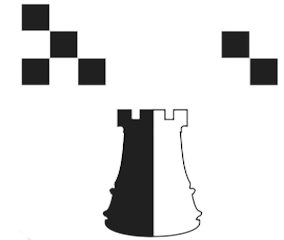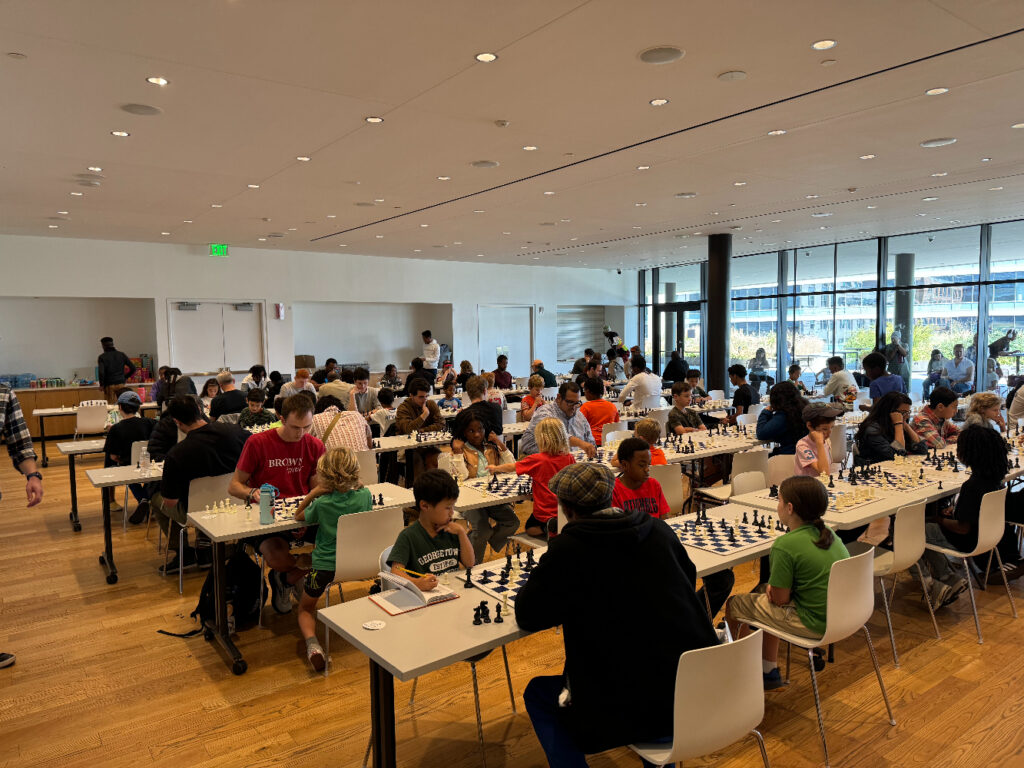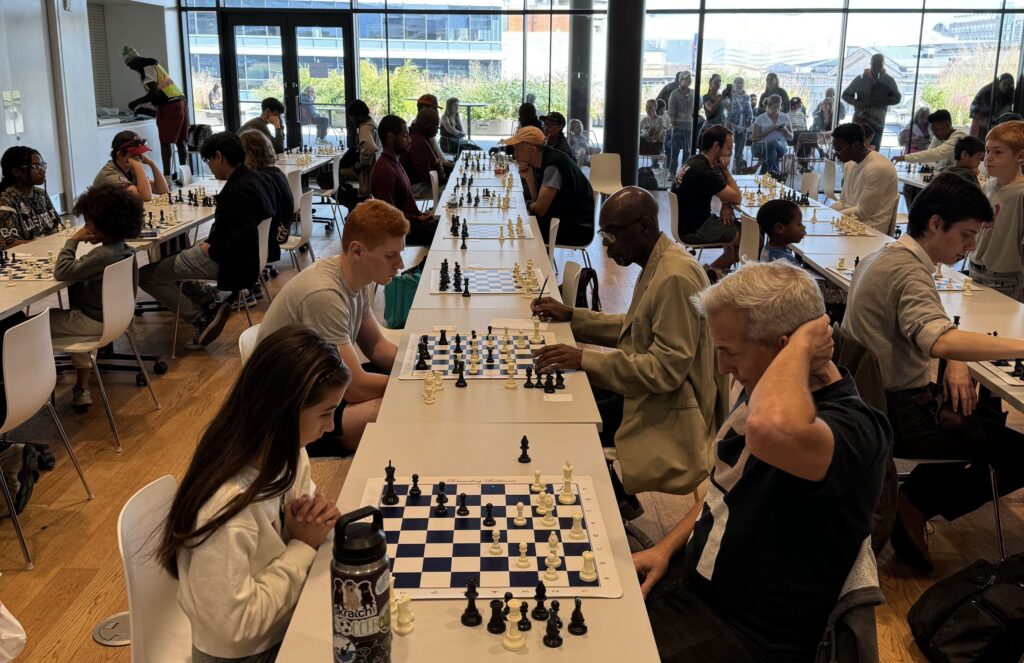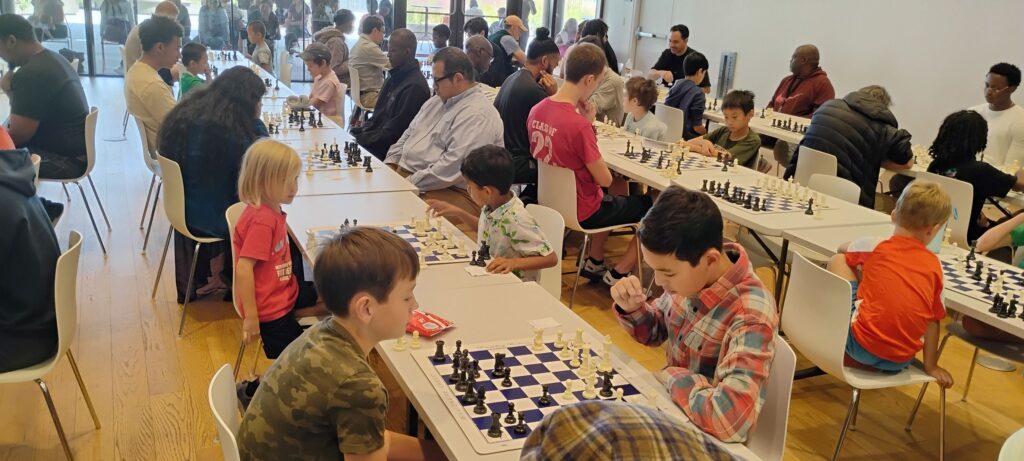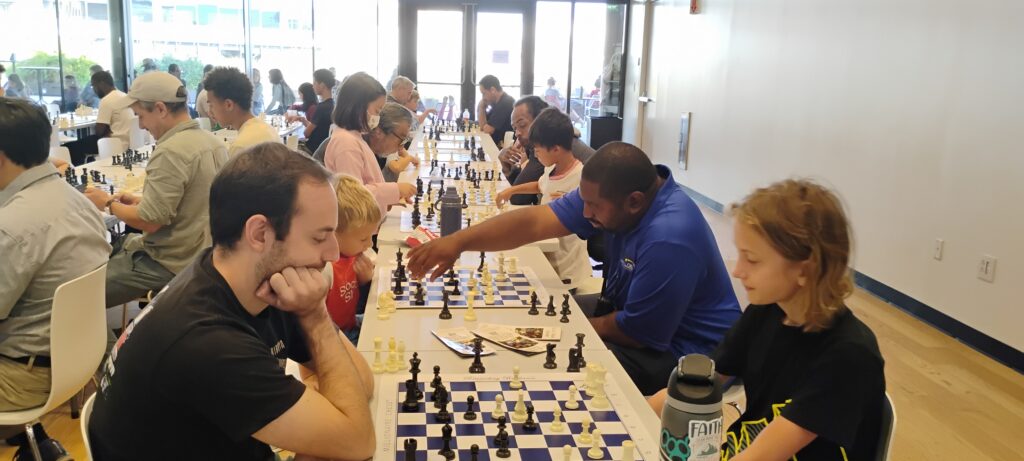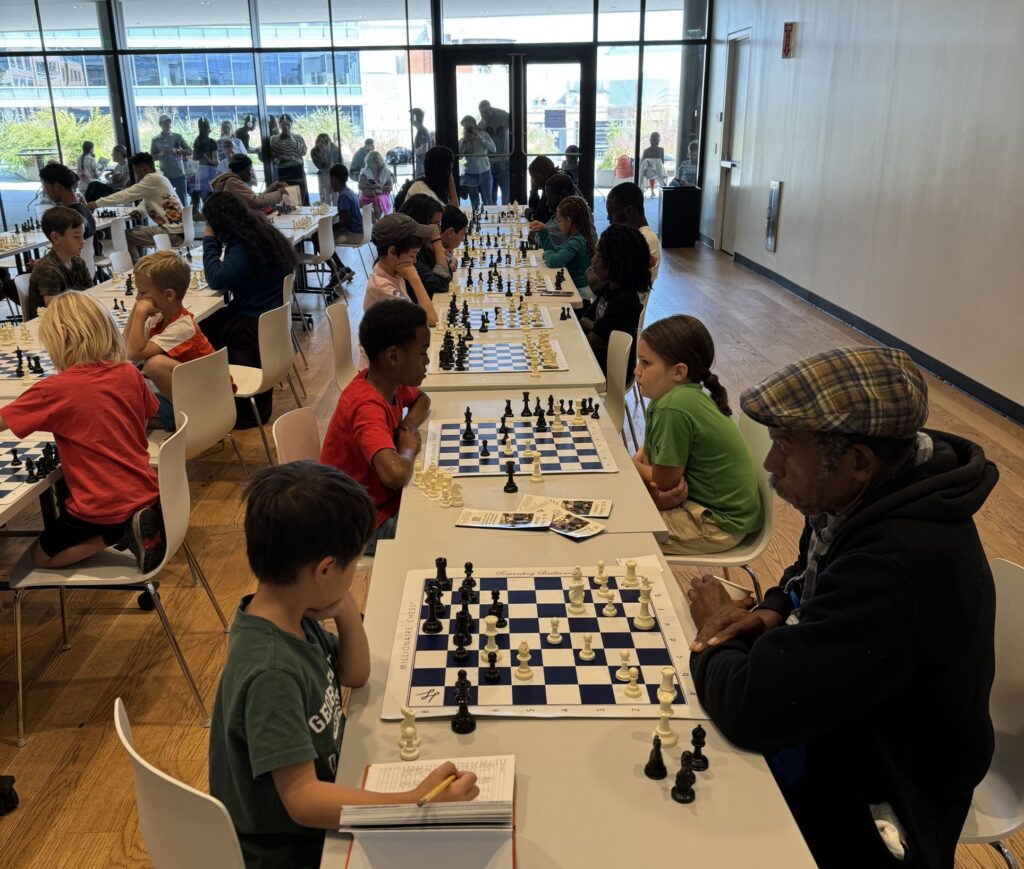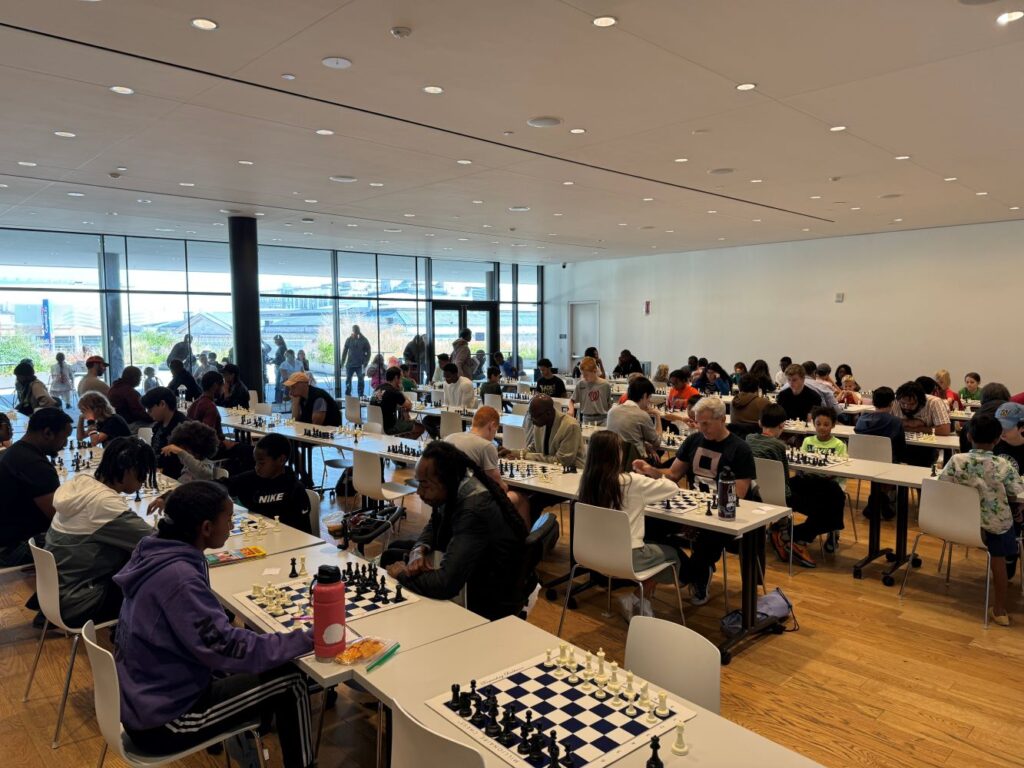Uncategorized
Rep. Raskin Recognizes the Chess Center in Congressional Remarks for National Chess Week
- by Chess Center
This past Friday, the U.S. Chess Center was proud to be named in U.S. Representative Jamie Raskin (MD-08)’s congressional remarks for National Chess Week.
In a statement celebrating the double medal-winning performances of the two American teams at September’s Chess Olympiad in Budapest, Hungary, Congressman Raskin also highlighted the value of chess as an educational and social tool for young people, a belief that has animated the work of the U.S. Chess Center since our founding.
https://www.congress.gov/congressional-record/volume-170/issue-155/extensions-of-remarks-section/article/E1025-3
Photos From a Great Season of Summer Camps
- by Chess Center
Our last week at Alpha STEM in Chantilly brought the curtain down on a fun summer of chess camps, during which we had around 150 kids enrolled with us. We spent time teaching students in Springfield, Chevy Chase, McLean (two weeks) and Vienna (two weeks) prior to the aforementioned camp in Chantilly.
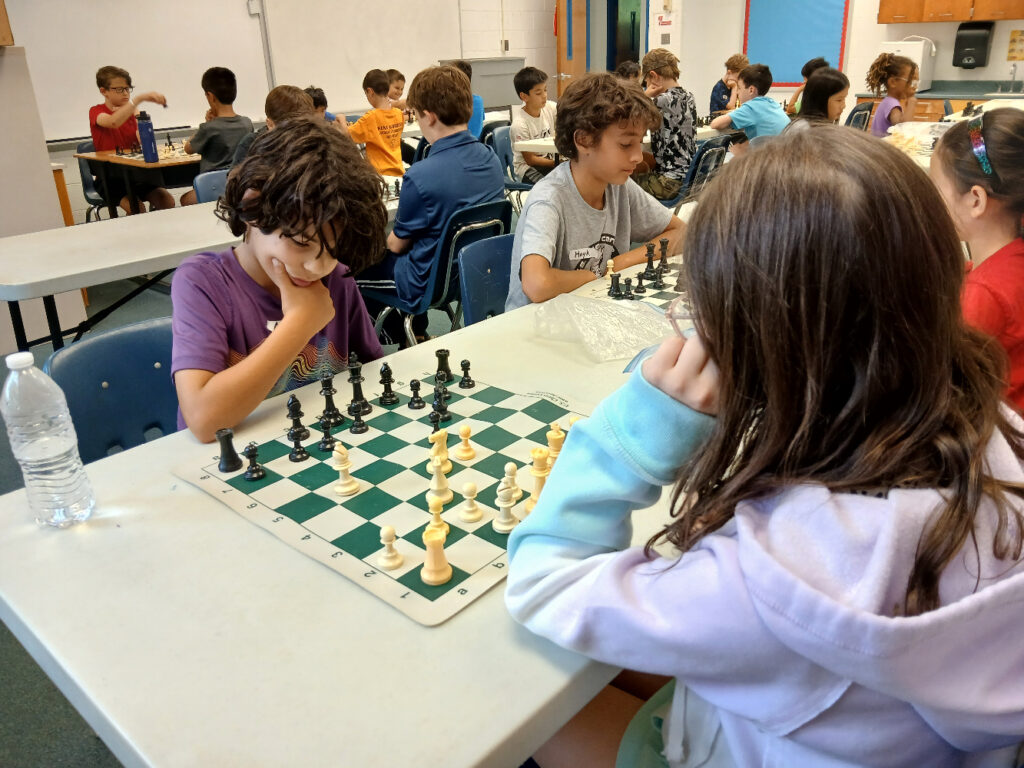
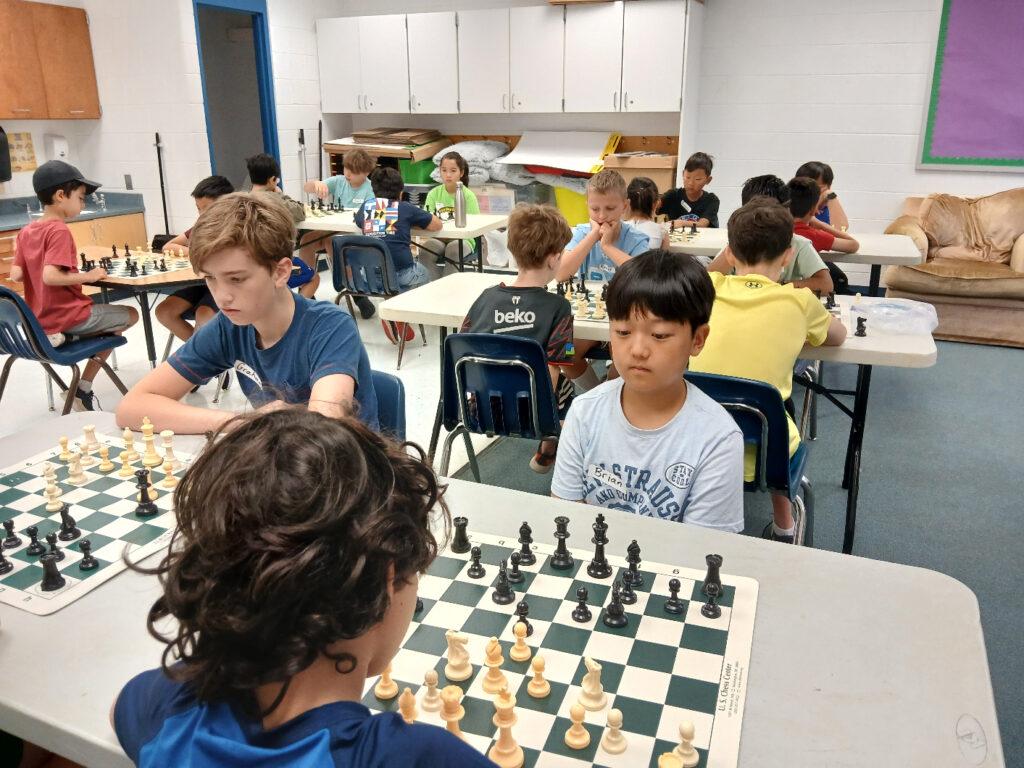
Some of our summer students we knew already from our after-school chess programs, while there were others we were happy to meet for the first time. As usual during our camps, we had all ability levels represented; some of the kids were beginners who learned the rules and strategy of chess over the course of camp. Other students used the time to build on the basic knowledge of the game that they already had. All of our lessons were structured and stratified so that everybody was challenged to learn something new.
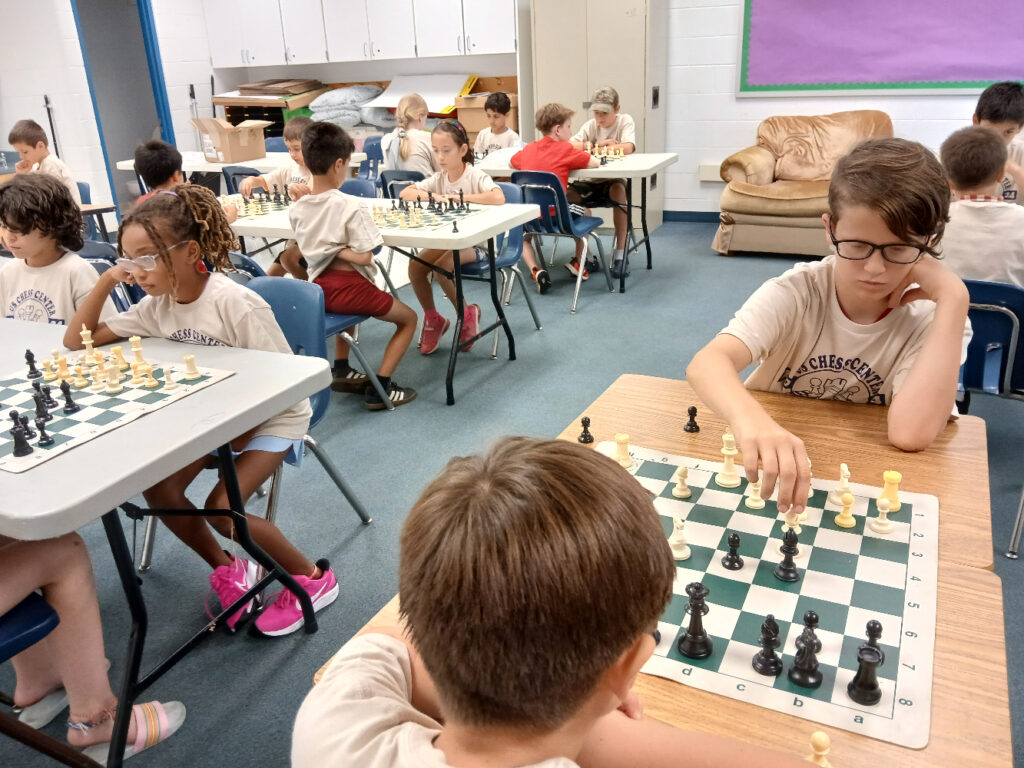
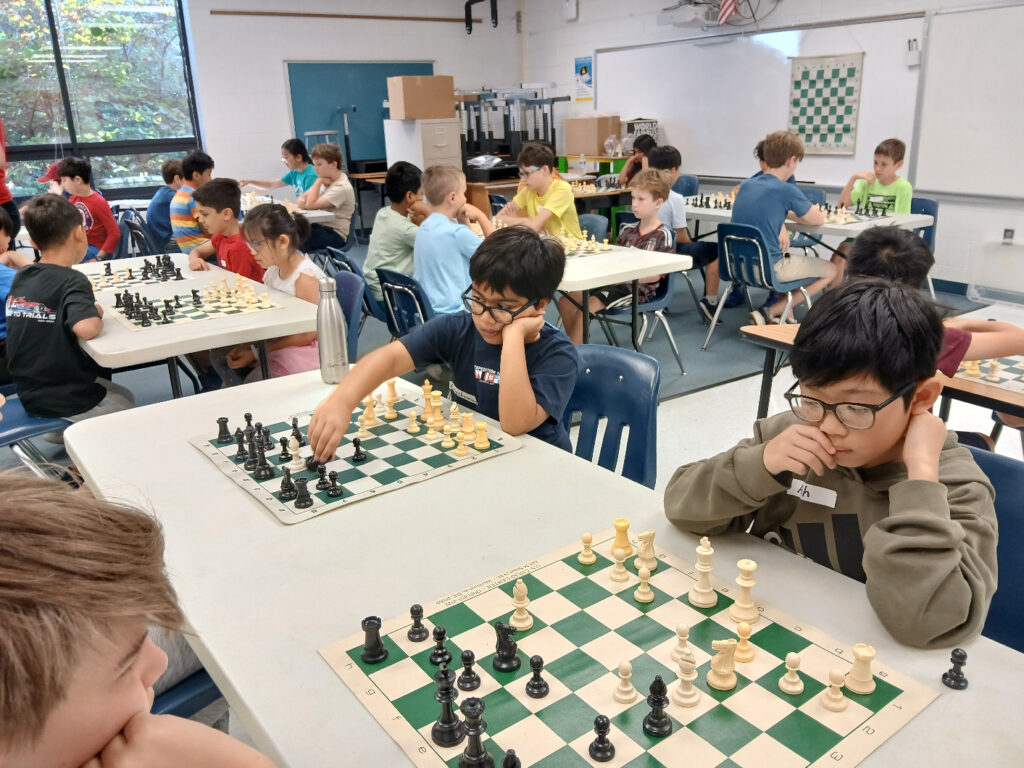
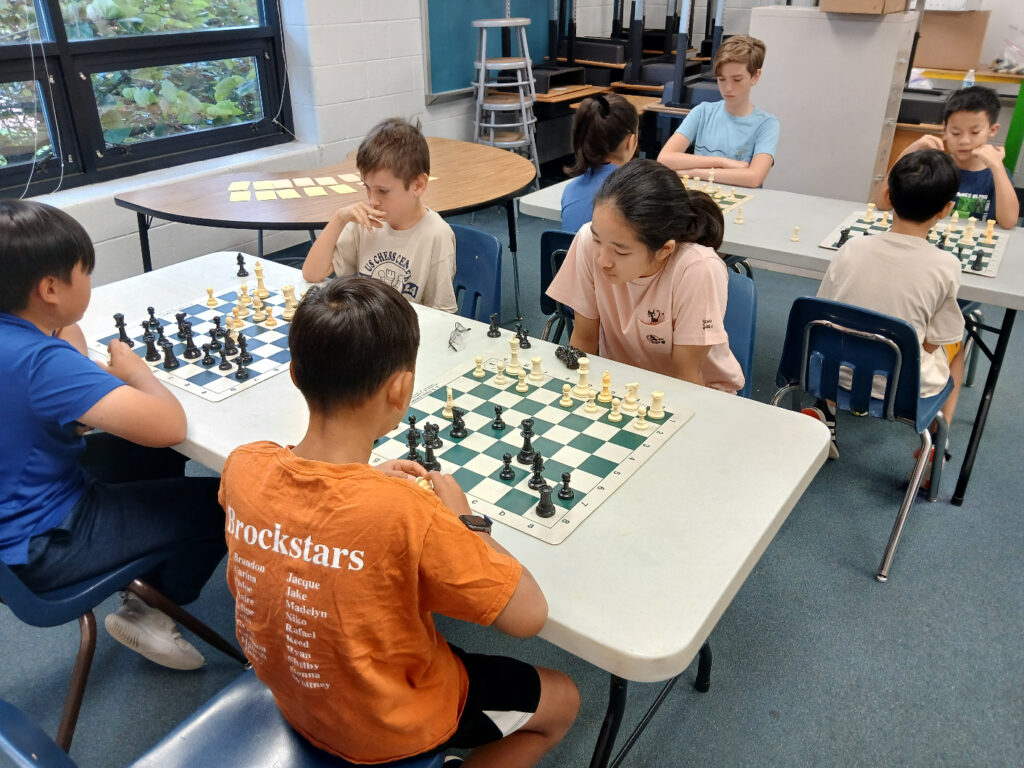
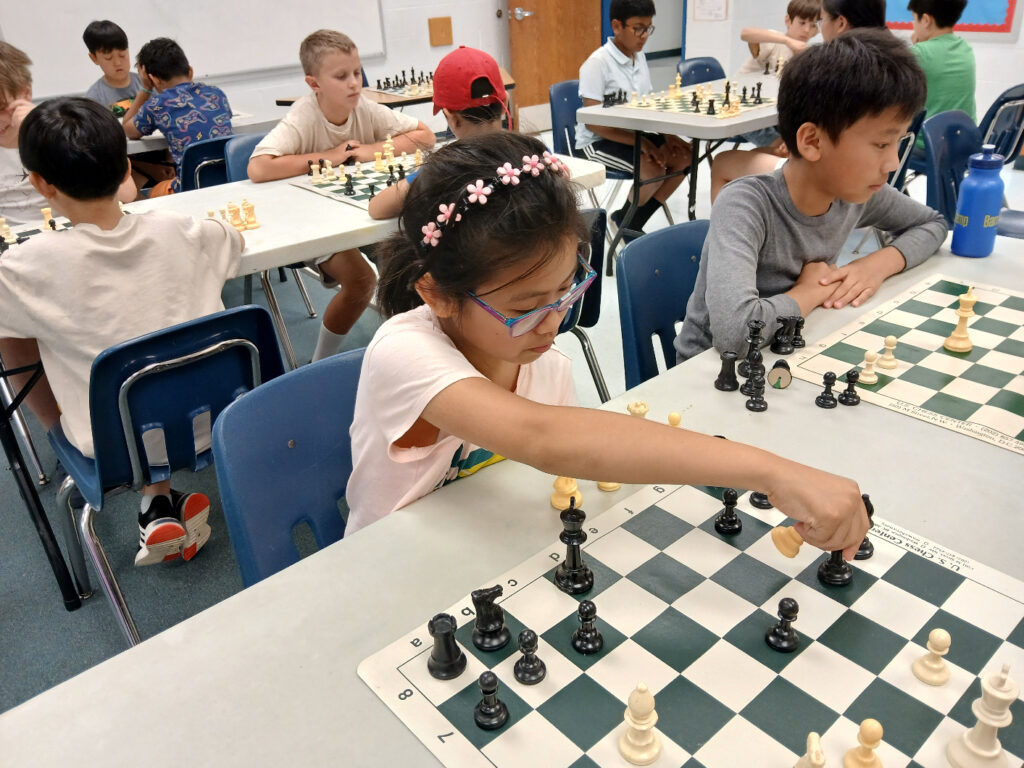
In between the lessons, the kids relieved some tension in the school gymnasium and made new friendships over skittles games. Each Friday of camp finished up with a tournament, during which the students got to put what they’d learned during the week on full display.
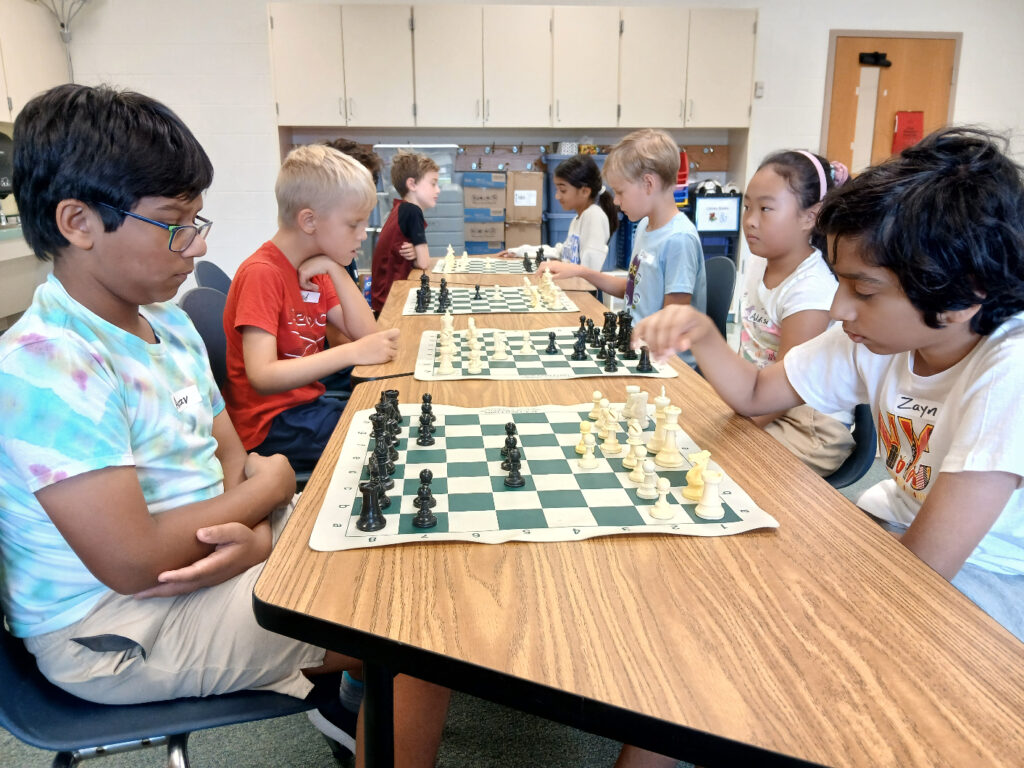
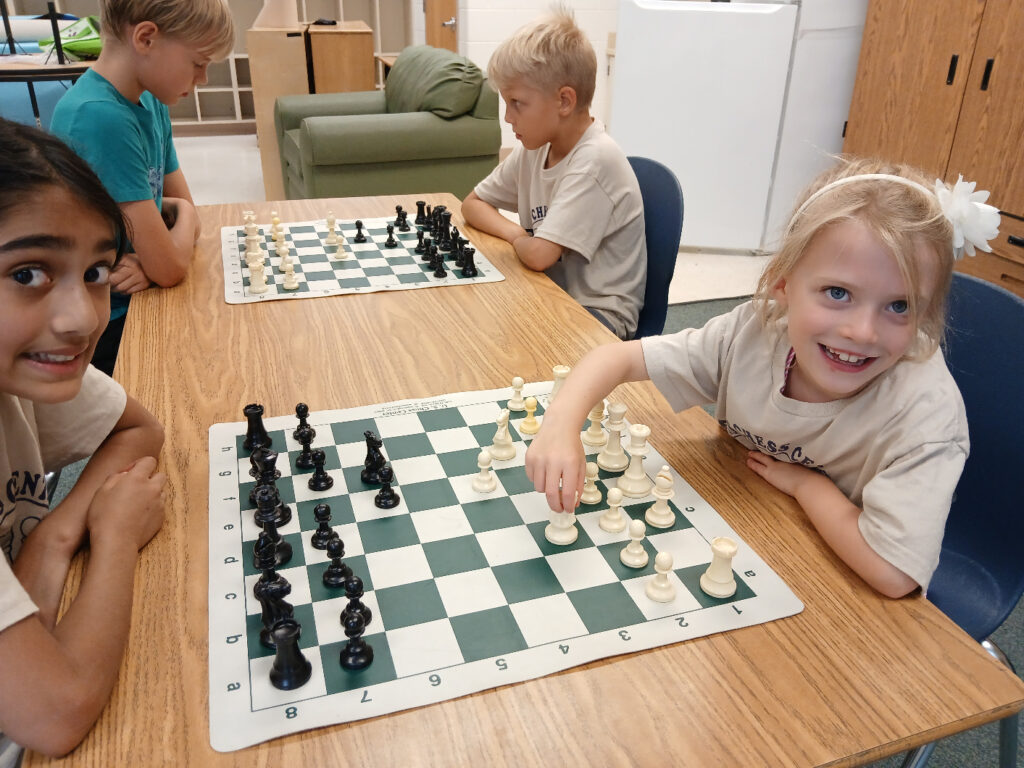
Chess helped us all make a lot of great memories this summer, and with the new school year nearly upon us, we are already looking eagerly ahead to the start of our after school clubs in just a few short weeks.
Dozens of Students Beat the Heat at Chess in the Park
- by Chess Center
In spite of the heat, we had 61 students show up to Eastern Market Metro yesterday for the second edition of Chess in the Park for the season. We ultimately cut the event 25 minutes short because of the weather, but a majority of the students got to play at least six games, with some playing as many as ten.
Over a dozen elementary and middle schools throughout the District of Columbia, Maryland and Northern Virginia were represented among the players. BASIS DC took the trophy for the top-performing team. St. Peter School fielded the largest team with 12 players (10 of whom were girls!) Congratulations to all who participated.
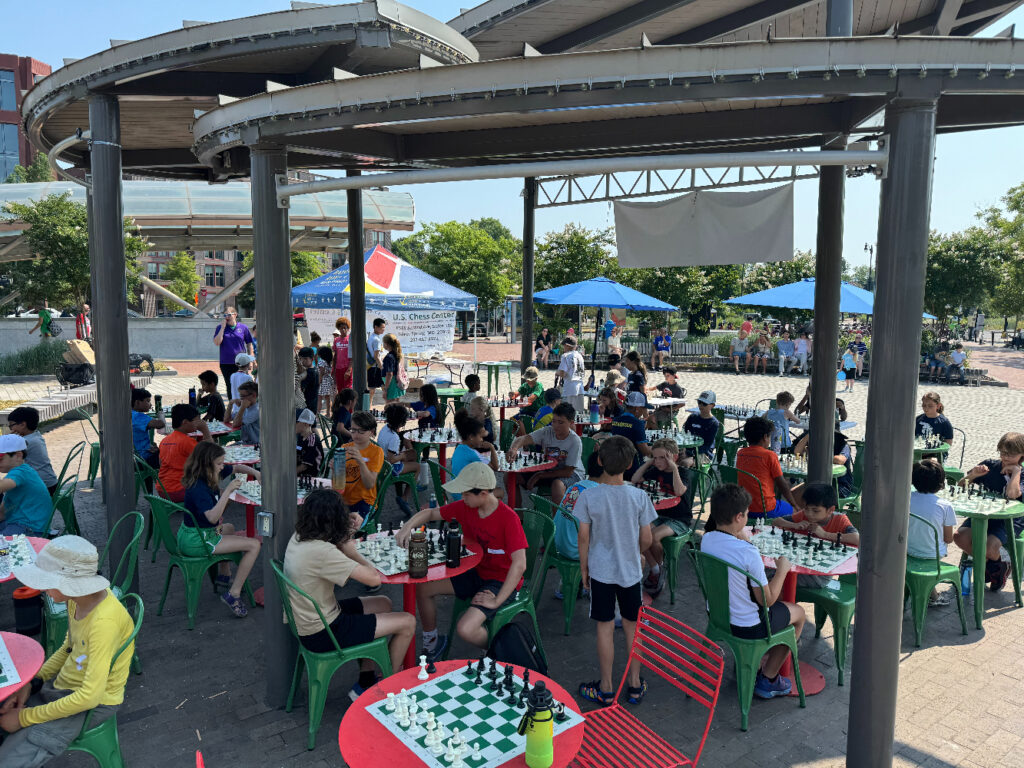
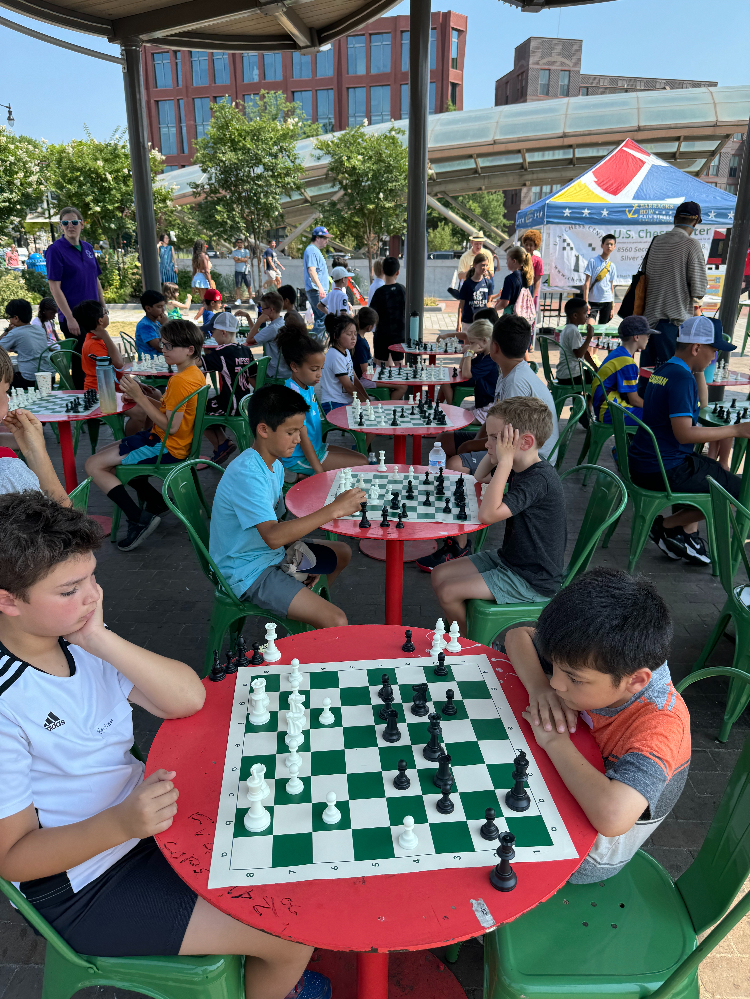
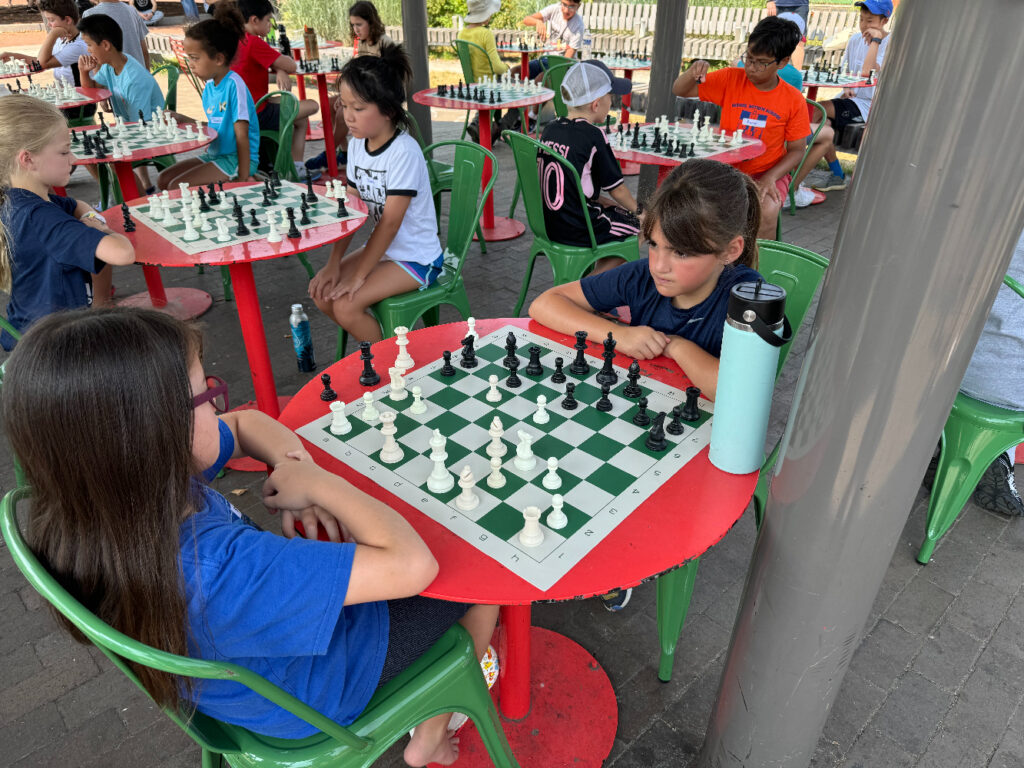
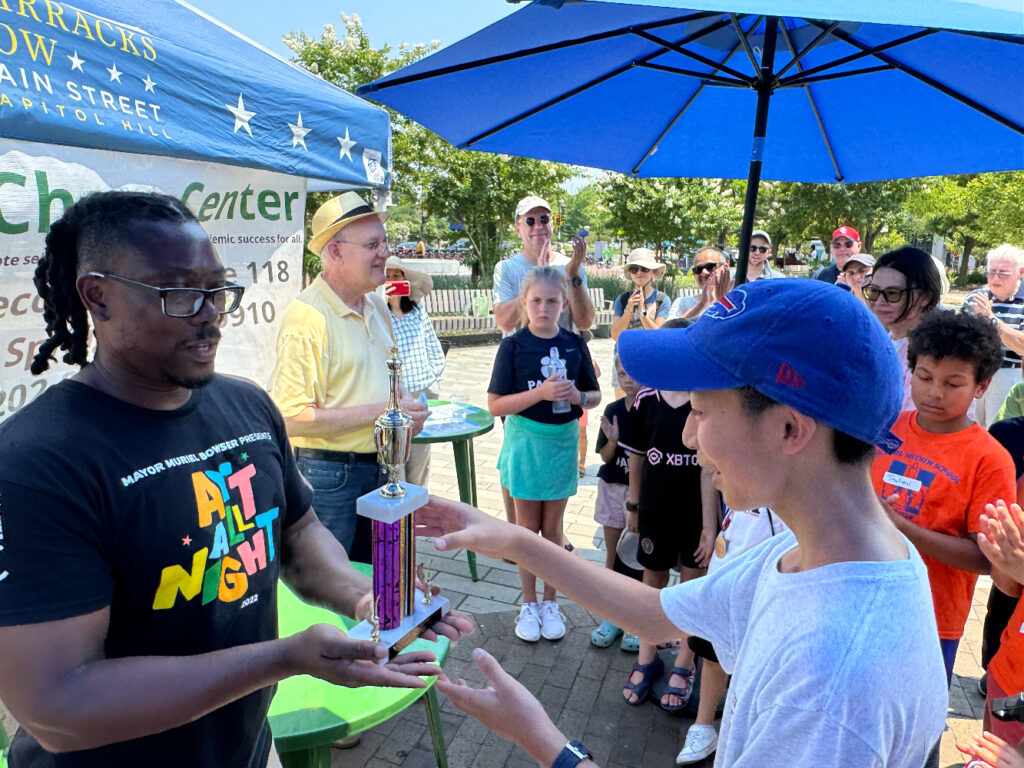
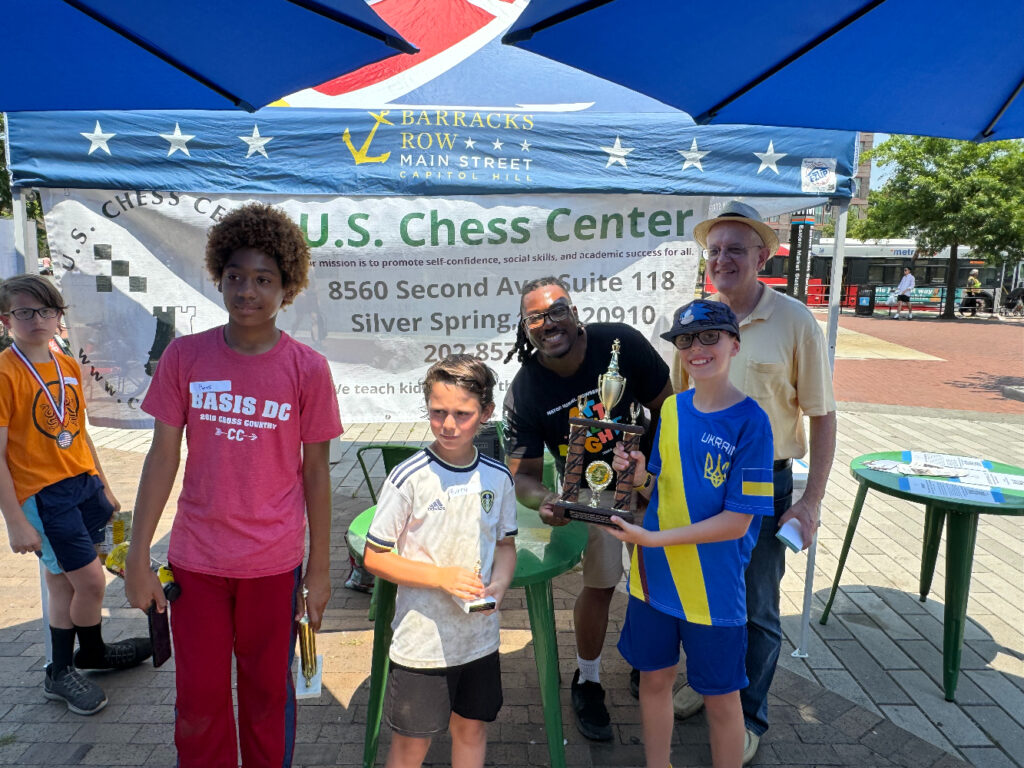
Learning All The Way – Tysons Corner Action Tournament
- by Riley Dosh
Apparently, I have stamina problems. The blitz tournament went far better than expected, but then one tough draw in rapid time control, and all my energy was zapped. I was able to rally by Game 4, but this was certainly not my best effort.
I spent drizzly Super Bowl Sunday indoors, playing at the Tysons Corner Action and Blitz tournaments hosted by DMV Chess. I’ve been to this regular tournament often, with middling but always rewarding results. However, this was my first time also attending their earlier blitz tournament, my second ever.
I didn’t expect to win the blitz tournament, and I didn’t, but I came within a half point hair. Instead, I ended in a 3-way tie for 2nd place, and 3rd place overall after tiebreaks. Facing opponents far more skilled than myself, including my friendly rival Don MacLean, I managed to pull out an excellent 7.0/10 points.
The blitz tournament was double-pairing, meaning I played two games against each opponent. It started out slow, trading wins against my first two opponents, before sweeping the next two. While the games were interesting, I couldn’t tell you how I won (or lost) them, except in one notable game. Still, I greatly enjoyed the pace and casual nature of the ordeal. Faster chess favors intuition over calculation, and as such favors me. My last opponent was the eventual winner, but I still won our first game. The confidence from that win went a long way in our second game. However, just as the defensive tango started getting spicy, I hung a back-rank mate. I lost out on the $100 and settled, quite happily mind you, for third. I credit hosting the weekly Bishops and Beers open chess night for my blitz success.
During the intermission between tournaments, Don and I went for a walk to get a late lunch. Two other players from the blitz tournament drove by and offered us a ride to a nearby restaurant. This was their first tournament ever, and it was exciting to chat with new faces. We talked about and played a game over a quick meal, before hurrying back for the rapid tournament. After talking with me and Don, the pair also decided to try out the rapid tournament!
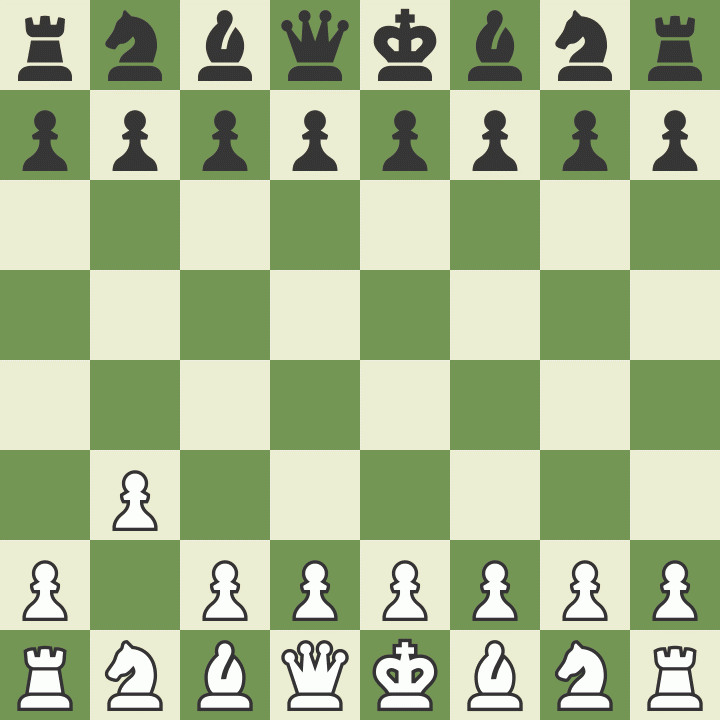
Game one was a tense affair. I felt safe throughout the opening as white’s minor pieces tripped over his pawns, but he still didn’t give me a way in. That changed after we traded queens and I got the opportunity for a pawn to break through. We picked up the pace as my opponent’s clocked ticked lower and lower. It soon reached a scant 2 seconds on the clock to my 3 minutes. His endgame was stronger than his middlegame, even while living on the 5 second delay. We at last reached a dreaded queen vs. rook endgame, in my favor. While I had studied this very endgame before, I couldn’t figure out the method over the board. The game ended with a stalemate trap, with a crowd of onlookers watching me flail.
The worst part about long games is that you have no time before the next round. Which probably led to game two being such a rollercoaster. It started strong, as I locked his pieces behind his pawns. To save a bishop, I threatened to sacrifice the other for a repetition. My opponent, rated 300 points higher than me, did not allow the draw. Instead, his counterattack threw me into a tight position. To exploit his advantage, he sacrificed a rook for a mating attack. However, he again allowed a chance for a repetition. Now a rook up, and holding, I felt like I could do better than a draw. I was wrong, and I lost.
Game three was a sorry affair that I am not proud of. All I could think of was how I was outplayed in last game, and distracted by a mechanical humming sound in constant one second bursts. Even with ear plugs in, or perhaps because of it, I couldn’t keep my mind off that humming and oh there goes my knight. I resigned far earlier than I would normally, because I had to admit I wasn’t giving nor could give my best. At least now I had time to rest between rounds.
With 0.5/3, I was paired with another kid who had so far gone 0.0/3. Neither of us were having a good tournament. I got myself tangled in the opening (that mechanical humming was a Chinese water torture on my brain), but my gracious opponent allowed me to awkwardly unfold my position. By the time I was ready to attack, I noticed his isolated king’s pawn and seized on the weakness. I traded pieces, confident that I would be favored in the endgame. I was saved from defending that confidence when my opponent gave away his queen en prise and resigned.
Not my best tournament, but learning all the way.
Metro Area Chess League 2023-24: Round 2 Results & Round 3 Pairings
White on Boards 1 & 3 – White on Boards 2 & 4
Magruder 1-3 Poolesville
DeMatha 1-3 McNamara
E.L. Haynes 4-0 Girls Global Academy
Richard Montgomery 3-1 Gonzaga
Rockville 2.5-1.5 Arlington Career Center
Oakton 4-0 West Springfield
St. Albans 0-4 Don Bosco Cristo Rey
BASIS DC 0-0 Marshall
Montgomery Blair 0.5-3.5 Chantilly
St. Anselm’s 2-2 Jackson-Reed
Hayfield 0-0 McLean
Rochambeau 4-0 BYE
St. John’s 0-4 Langley
McKinley Tech 0-3 Georgetown Prep
Below are the pairings for the third round to be played by January 12
White on Boards 1 & 3 – White on Boards 2 & 4
Poolesville – Chantilly
Bishop McNamara – Richard Montgomery
Langley – Rockville
St. Anselm’s – Oakton
Rochambeau – Magruder
Jackson-Reed – EL Haynes
Georgetown Prep – McLean
BASIS DC – Blair
West Springfield – Marshall
Gonzaga – McKinley Tech
Girls Global Academy – St. John’s
Hayfield – DeMatha
Don Bosco Cristo Rey – Arlington Career
Teams are ranked by Match Points, then by Board Points.
| Place | School | Total Match Points | Total Board Points |
|---|---|---|---|
| 1st | Oakton | 2 | 8 |
| 2nd (Tie) | Chantilly | 2 | 7.5 |
| 2nd (Tie) | Langley | 2 | 7.5 |
| 4th (Tie) | Poolesville | 2 | 7 |
| 4th (Tie) | Richard Montgomery | 2 | 7 |
| 6th | Rockville | 2 | 6.5 |
| 7th (Tie) | St. Anselm's | 1.5 | 6 |
| 7th (Tie) | Bishop McNamara | 1.5 | 5 |
| 9th | Don Bosco Cristo Rey | 1 | 5 |
| 10th | Rochambeau | 1 | 4.5 |
| 11th (Tie) | E.L. Haynes | 1 | 4 |
| 11th (Tie) | Magruder | 1 | 4 |
| 11th (Tie) | McLean | 1 | 4 |
| 14th | Montgomery Blair | 1 | 3.5 |
| 15th | Georgetown Prep | 1 | 3 |
| 16th | Gonzaga | 0.5 | 3 |
| 17th (Tie) | BASIS DC | 0.5 | 2 |
| 17th (Tie) | Jackson-Reed | 0.5 | 2 |
| 17th (Tie) | McKinely Tech | 0.5 | 2 |
| 17th (Tie) | St. Albans | 0.5 | 2 |
| 17th (Tie) | West Springfield | 0.5 | 2 |
| 22nd | Arlington Career Center | 0 | 2.5 |
| 23rd | DeMatha | 0 | 1 |
| 24th (Tie) | Girls Global Academy | 0 | 0 |
| 24th (Tie) | Hayfield | 0 | 0 |
| 24th (Tie) | Marshall | 0 | 0 |
| 24th (Tie) | St. John's | 0 | 0 |
U.S. Chess Center closed from 12/21/23 – 1/1/24
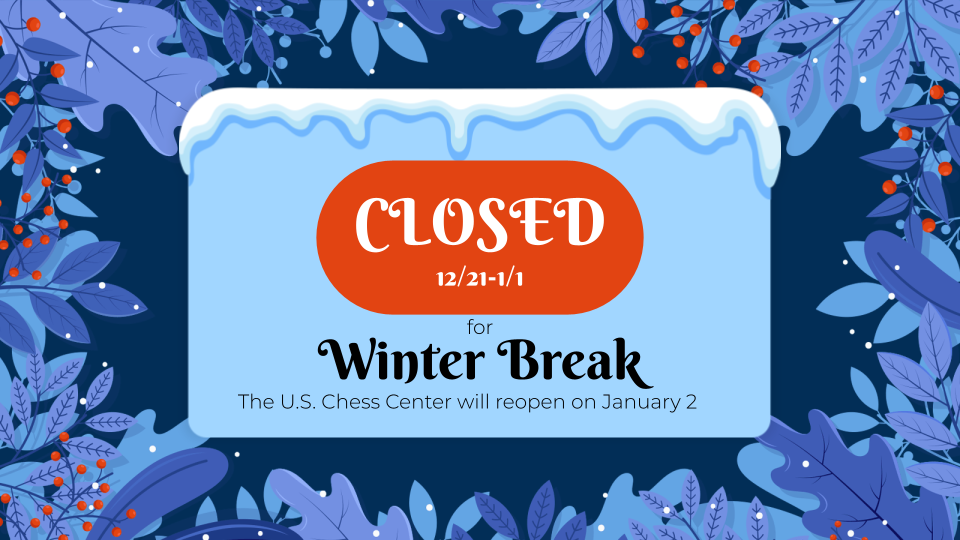
We will be closed for a winter break starting Thursday, December 21, 2023 and we will reopen on Tuesday, January 2, 2024. During this time we will not be hosting Bishops+Beers and we will not hold Saturday Afternoon Open Play. Happy Holidays!
Magruder High School Live Streaming Chess Competition
- by Chess Center
Metro Area Chess League participant Col. Zadok Magruder High School is in the middle of their spring chess competition. Games are taking place in the auditorium during the school day, and Magruder’s chess club sponsor, Mr. Sanders, has put in the effort to set the event up for streaming. The games can be followed live on the school’s YouTube channel. The semifinals and finals are currently set for May 17 and 24, respectively.
We are very pleased to see school faculty members devoting time, space and energy to promote chess among students.
Online Fundraiser for Ukraine on March 7
- by Chess Center
Students of ours played two Internet matches with children from Ukraine last year. We wish those young people well and are horrified by what they are experiencing.
An online fund-raiser for Ukraine will be held Monday, and we hope everyone will contribute what they can.
More information here (PDF): Support Ukraine.
